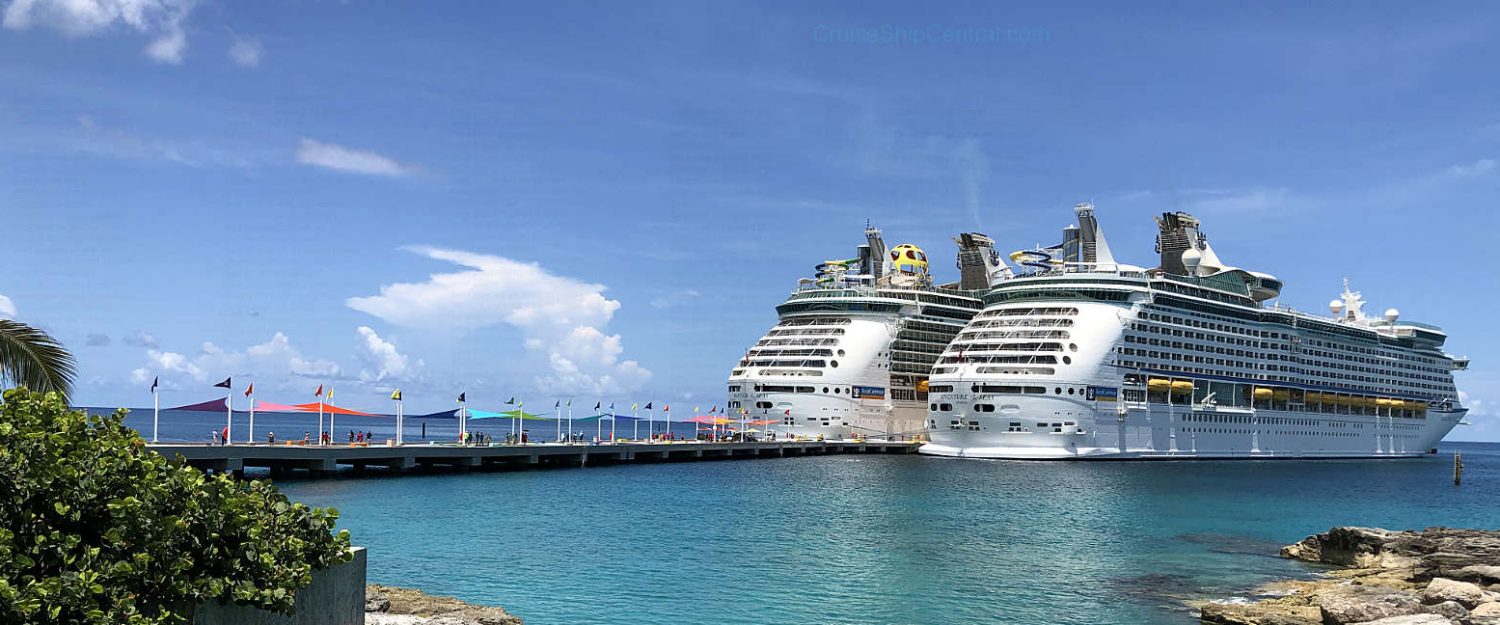Well, let me tell you something interesting – you may not need a passport to check in for a cruise! Yes, you heard that right! It turns out that depending on your destination and nationality, there are some scenarios where you can embark on a cruise without a passport. Now, before you start celebrating or scratching your head with confusion, let me walk you through the various scenarios and guidelines that determine whether you can set sail passport-free. So, let’s set sail on this informative journey, shall we?

Identification Requirements for Cruises
Cruising is a popular and exciting way to travel, whether it’s for a relaxing getaway or a thrilling adventure. However, before embarking on a cruise, it’s important to be aware of the identification requirements that may apply. The type of identification needed may depend on whether you’re taking a domestic or international cruise. Let’s explore the different requirements for each and what you need to know to ensure a smooth and hassle-free cruise experience.
Passport vs. Other Forms of Identification
When it comes to identification for cruises, one of the most common questions people have is whether a passport is necessary. The answer to this question largely depends on the type of cruise you’ll be taking. For domestic cruises, a passport is typically not required, but there are some exceptions. On the other hand, for international cruises, a valid passport is almost always a requirement.
Domestic Cruises
If you’re planning to take a domestic cruise, such as one that sails within the United States, the identification requirements are generally less strict compared to international cruises. Domestic cruises mainly cater to individuals who are looking to explore various destinations within the country, and as a result, they typically do not require a passport.
Applicable Scenarios
So, in what scenarios would you need identification for a domestic cruise? While a passport might not be necessary, it’s important to still have a valid form of identification on hand. This could be your driver’s license, state-issued ID card, or any other government-issued identification. These forms of ID will be needed when boarding the cruise ship and when going through security checks.
Accepted Forms of ID
To ensure a smooth check-in process for your domestic cruise, make sure your identification is up to date and matches the information on your cruise reservation. It’s also advisable to bring a printed copy of your cruise confirmation with you, just in case. While a passport may not be required, it’s always a good idea to have one as an alternative form of identification, especially if you plan to go on future international cruises.
International Cruises
For those planning to embark on an international cruise, a valid passport is a crucial requirement. This is because an international cruise involves traveling to different countries, and a passport serves as official proof of your identity and citizenship.
Importance of Passports
Having a passport for international cruises is not just a matter of meeting the identification requirements; it also grants you access to a broader range of destinations and experiences. With a passport in hand, you can explore exotic ports of call, immerse yourself in different cultures, and make unforgettable memories as you sail across oceans.
Passport Validity Requirements
It’s important to note that not just any passport will suffice for an international cruise. Most cruise lines require that your passport be valid for at least six months beyond the end of your cruise. This is to ensure that you’ll have no issues when entering different countries and to allow for unforeseen delays or changes in your itinerary.
Visa Requirements for Specific Countries
In addition to a passport, some countries may have specific visa requirements for entry. It’s essential to research and familiarize yourself with the visa requirements of each destination on your cruise itinerary. This will help ensure that you have all the necessary documentation in order well before your cruise departure date.

Exceptions and Special Cases
While the general rules regarding identification for cruises hold true, there are a few exceptions and special cases that are worth mentioning.
Closed-Loop Cruises
Closed-loop cruises are those that begin and end at the same U.S. port. In these cases, a passport may not always be required, but it’s still highly recommended to have one. Instead of a passport, some closed-loop cruises may accept a government-issued photo ID, such as a driver’s license, along with proof of citizenship, such as a birth certificate or a certificate of naturalization. However, keep in mind that these requirements can vary from cruise line to cruise line, so it’s always best to check with your specific cruise provider.
Cruises to Canada and Mexico
Cruises that sail to Canada and Mexico present a unique case. While a passport is not always mandatory, it is highly recommended to have one for these cruises. In some instances, a passport card may be accepted as an alternative to a traditional passport. However, due to the ever-changing regulations, it’s important to verify the current requirements with the cruise line and the appropriate government agencies well in advance.
Cruises with U.S. Territories
Cruises that include visits to U.S. territories, such as Puerto Rico, the U.S. Virgin Islands, or Guam, generally do not require a passport for U.S. citizens. A government-issued photo ID and proof of citizenship, such as a birth certificate, are typically sufficient. However, it’s always recommended to double-check the specific requirements with your cruise line, as they may vary.
Documentation for Non-U.S. Citizens
For non-U.S. citizens embarking on cruises, the identification requirements may differ from those of U.S. citizens. It’s important for non-U.S. citizens to be aware of the specific passport and visa requirements that apply to them.
Passport Requirements for Non-U.S. Citizens
Non-U.S. citizens should have a valid passport from their home country. The passport should be valid for the entire duration of the cruise and, in some cases, for a certain period beyond the cruise as well. It’s advisable to check with the cruise line and the appropriate consulates or embassies to ensure you have the necessary documentation for travel.
Additional Required Documentation
In addition to a passport, non-U.S. citizens may be required to obtain a visa to enter certain countries during the cruise. The visa requirements can vary greatly depending on your citizenship and the countries you’ll be visiting. It’s crucial to research and understand the visa requirements well in advance and to allow sufficient time for visa processing.
Conclusion
Being aware of the identification requirements for cruises is essential to ensure a smooth and stress-free sailing experience. Whether you’re planning a domestic or international cruise, understanding the documentation needed will help you prepare and avoid any unnecessary complications. Remember to always check with your specific cruise provider, the appropriate government agencies, and any relevant consulates or embassies to stay up to date with the most current requirements. Bon voyage!

